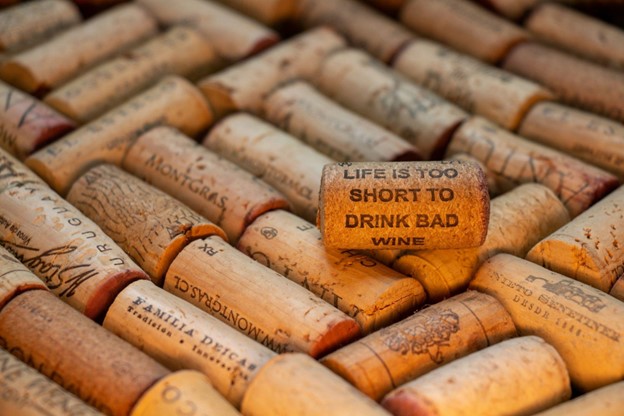
Cork vs Screw Cap: All the Truths Revealed and Myths Debunked
 Photo: D A V I D S O N L U N A / Unsplash
Photo: D A V I D S O N L U N A / Unsplash
The debate between cork and screw cap closures for wine has been simmering for decades. Wine traditionalists often champion cork, while novices tend to assume screw caps are a sign of a less prestigious wine. But is there any truth to these beliefs?
Let’s uncork the myths and reveal the facts behind these two common wine closures. Whether you’re a casual sipper who occasionally likes to buy chardonnay wine online or a dedicated collector obsessed with aging wines, the following information will help you make more informed choices.
Myth 1: Cork is Always Superior for Wine Aging
Traditionally, natural cork has been the go-to closure for aging wines. Cork allows for minimal oxygen exchange, which is ideal for slow, controlled aging. However, natural cork can be inconsistent. Some corks are too porous, allowing excessive oxidation and spoilage, while others are too tight, hindering the subtle aging process.
Truth: Modern technology has addressed some of cork’s shortcomings. High-quality, treated corks minimize inconsistency and offer predictable oxygen exchange. However, screw caps have emerged as a viable alternative, particularly for white wines and young reds meant for near-term consumption.
Myth 2: Screw Cap Wines Are Lower Quality
Some associate screw caps with mass-produced, inexpensive wines. However, this is a misconception.
Truth: Many high-quality wineries – particularly in innovative regions like New Zealand and Australia – are embracing screw caps for their whites and even some reds. Screw caps offer several advantages:
- They ensure a perfect seal every time, eliminating the risk of cork taint (a musty flavor caused by a chemical compound in some natural corks).
- They create a near-airtight seal, preserving the wine’s freshness.
- They’re easy to open and reclose, allowing for multiple pours and freedom from corkscrews.
Myth 3: You Can’t Age Wine with a Screw Cap
Natural cork has traditionally been used for long-term aging. However, research suggests high-quality screw caps can effectively preserve wines for extended periods.
Truth: The suitability of a closure for aging depends on the type of wine and the intended aging timeframe. Screw caps are excellent for white wines and young reds meant for near-term enjoyment (up to 5-10 years). For long-term aging (10+ years), high-quality natural cork remains the best option. Watch this space, though, as advancements in screw cap technology mean this fact may soon need to be amended.
Choosing the Right Closure: It’s All About the Wine
Ultimately, the choice of closure is a decision made by the winemaker based on the specific wine style and intended aging potential. Both cork and screw caps can effectively seal wine, and each has advantages.
Here’s a quick guide to help you:
- Natural Cork: Ideal for long-term aging of red wines where controlled oxygen exchange is desirable.
- High-Quality, Treated Cork: Good for some red wines and certain white wines where some aging is intended.
- Screw Cap: Excellent for white wines, young reds meant for near-term consumption, and wines where preserving freshness and fruitiness is a priority.
- Synthetic Corks: These offer some of the benefits of natural corks with more consistency in terms of oxygen exchange.
- Glass Stoppers: Increasingly popular for premium wines, these offer an elegant look and a near-airtight seal.
Don’t let the closure dictate your wine experience. Focus on the varietal, region, and producer to find a bottle that suits your taste. With an open mind, you can appreciate the vast world of wines, regardless of the closure.









Thank you for sharing this